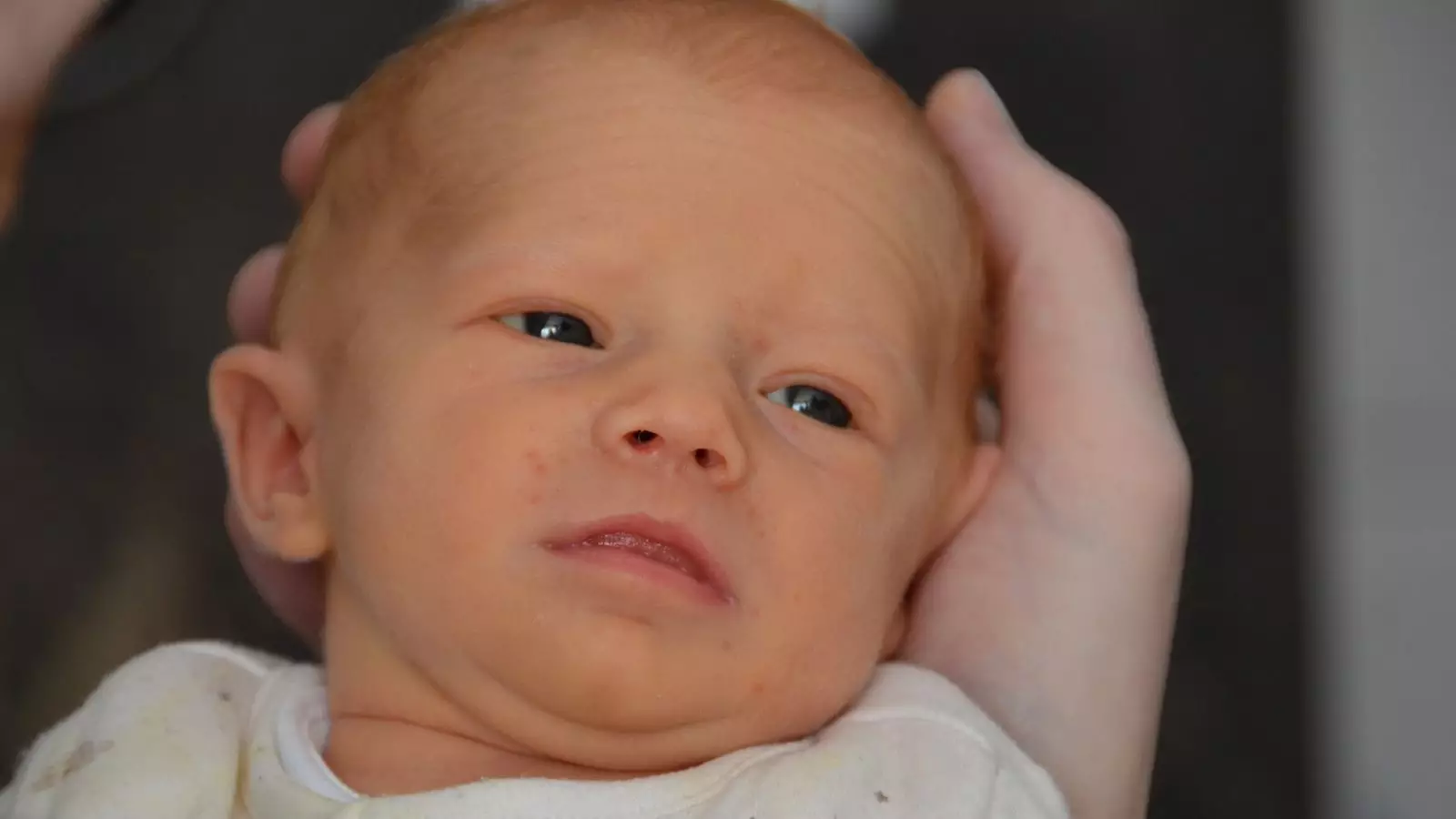In an extraordinary advancement within the realm of reproductive medicine, a baby girl named Amy Isabel has become the first child born in the UK following a womb transplant. This significant achievement not only represents a beacon of hope for women plagued by uterine issues but also provokes a conversation about the evolving landscape of fertility treatments and the ethical implications bound to them. Grace Davidson, the mother, experienced a transformative journey that began with her own diagnoses of Mayer-Rokitansky-Kuster-Hauser (MRKH) syndrome, a condition that has made her inability to conceive a painful reality. The exquisite joy she holds for her newborn daughter sheds light on the emotional rollercoaster that couples often endure in their pursuit of parenthood.
Confronting the Challenges of Infertility
Grace Davidson’s story resonates deeply with countless women who face the daunting barriers of infertility. Born with a condition that limits reproductive capabilities, Grace’s situation isn’t unique—MRKH syndrome affects approximately one in 5,000 women. The overwhelming grief that comes from wanting a child while grappling with unimaginable physical limitations is disturbing. Yet, Grace’s venture into the world of womb transplantation offers more than hope; it signifies a form of resilience that exists within women like her. With unwavering determination, Grace and her husband, Angus, embarked on a path filled with uncertainty: creating embryos through fertility treatments, all the while waiting for the success of an unprecedented surgical procedure.
The Unforgettable Gift of Sisterly Love
One cannot overlook the profound emotional significance of the womb donor: Grace’s sister, Amy Purdie, who courageously offered her womb selflessly. This act of familial love underscores the lengths that family members will go to support one another. The bond between sisters is often intricately woven with sacrifice, yet this remarkable act takes that connection to unparalleled heights. Purdie’s willingness to give the gift of life transforms the narrative of not just one family, but also offers hope to an entire community navigating similar struggles. The blend of medical science and altruism presents a compelling case for the potential of living organ donations, raising questions about how society views the boundaries of family and lending a broader understanding of reproductive rights.
The Intersection of Science and Emotion
The account of Amy’s birth, hurried through a planned caesarean section, serves to highlight the intricate balance between medicine and deep-rooted human emotion. The clinical precision needed for such surgeries contrasts with the raw vulnerability exhibited by parents during such a significant moment. In an environment where professional expertise collides with emotional investment, the reactions of Grace and Angus upon witnessing their daughter for the first time reveal the true essence of joy. Their emotional breakdown, filled with elation and disbelief, effectively brings to light an illuminating truth: the journey to bring a life into this world is often as impactful as the life itself.
Long-term Societal Implications
As groundbreaking as this story may be, it compels us to question the ethical landscape surrounding reproductive technology. How far are we willing to go in pursuit of parenthood? The womb transplant performed by Professor Richard Smith and Isabel Quiroga not only raises important questions about medical advancements but also confronts the realities of access. This miracle is made possible within a healthcare system that is progressively embracing innovation; however, can we guarantee that all women have access to such life-changing procedures? This case illustrates a significant achievement but simultaneously emphasizes the disparities that often plague the healthcare landscape, particularly concerning reproductive rights.
Ultimately, the inspirational journey of Grace Davidson speaks volumes about human determination and the relentless pursuit of happiness. While individual families revel in the prospect of new beginnings, broader societal discussions must ensue to ensure that such medical wonders are made accessible to all, reinforcing our collective values of equity and compassion.



Leave a Reply